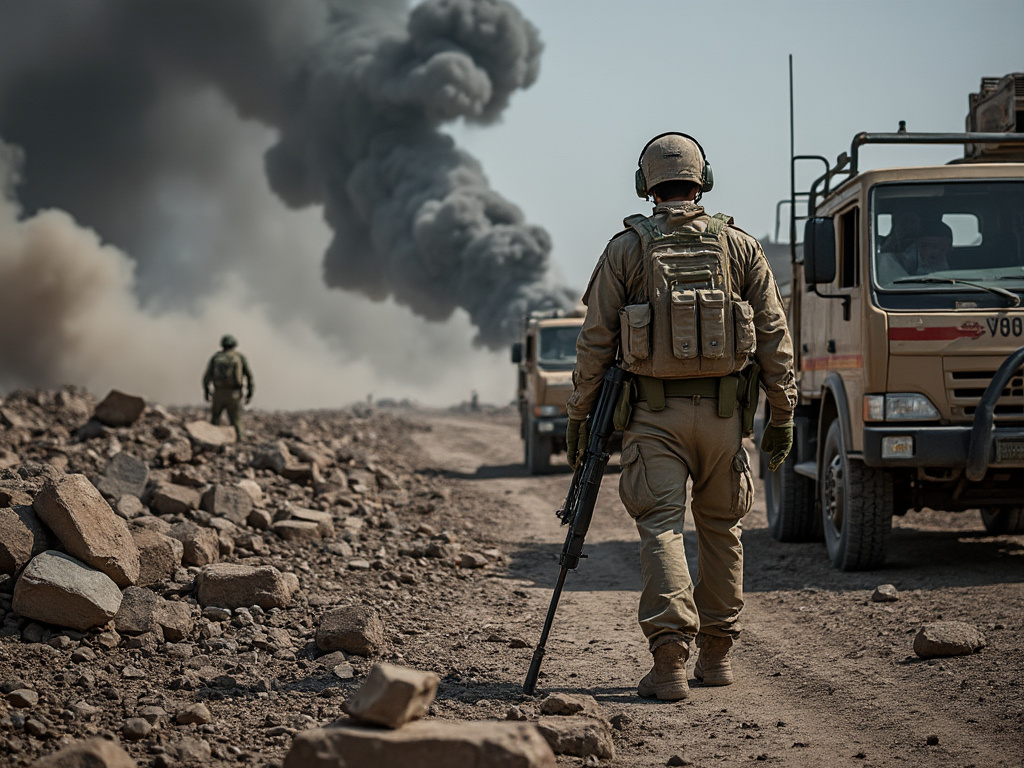
Syria Permits Chemical Weapons Inspectors Access to Sites from Assad Era
Recent developments allow international inspectors to visit previously unvisited chemical weapons production and storage sites.
Recent reports indicate that interim authorities in Syria have granted chemical weapons inspectors access to production and storage sites linked to the regime of Bashar al-Assad, over three months after he was ousted.
A team from the Organisation for the Prohibition of Chemical Weapons (OPCW) visited Syria from March 12 to March 21 to prepare for a mission aimed at identifying and destroying the regime's illegal chemical weapons stockpiles.
The inspectors examined five sites, some of which had reportedly been looted or bombed.
Sources, who requested anonymity, noted that some sites had not been previously disclosed to the OPCW by the Assad government.
The team reportedly obtained detailed documents and information regarding Assad's chemical weapons program.
In a summary of the visit published online, the OPCW stated that Syria’s interim authorities provided all possible support and cooperation during the short notice of the inspectors' arrival.
The inspectors had designated security escorts and were able to access the sites and personnel without hindrances.
No additional details were disclosed.
This cooperation marks a significant improvement in relationships compared to the past decade, when officials from the Assad regime obstructed the work of inspectors.
A diplomatic source familiar with the situation remarked that the visit underlines the interim Syrian authorities' commitment to working with the international community towards the dismantling of Assad's chemical weapons arsenal.
According to a report by Reuters, the destruction of any remaining chemical weapons was a precondition set by the United States for Syria to receive any relief from sanctions.
Investigations have determined that forces loyal to the Assad regime utilized sarin nerve gas and chlorine barrel bombs during the civil war, resulting in thousands of deaths and injuries.
These investigations were conducted through a joint mechanism established by the United Nations and the OPCW, the OPCW's Investigation and Identification Team, and a UN investigation into war crimes.
Experts from the OPCW believe there are still undeclared stockpiles and are seeking to visit over 100 locations suspected of having been used by Assad's forces to store or produce chemical weapons.
The OPCW is preparing to establish a field office in Syria, where escalating violence has recently raised security concerns.
A team from the Organisation for the Prohibition of Chemical Weapons (OPCW) visited Syria from March 12 to March 21 to prepare for a mission aimed at identifying and destroying the regime's illegal chemical weapons stockpiles.
The inspectors examined five sites, some of which had reportedly been looted or bombed.
Sources, who requested anonymity, noted that some sites had not been previously disclosed to the OPCW by the Assad government.
The team reportedly obtained detailed documents and information regarding Assad's chemical weapons program.
In a summary of the visit published online, the OPCW stated that Syria’s interim authorities provided all possible support and cooperation during the short notice of the inspectors' arrival.
The inspectors had designated security escorts and were able to access the sites and personnel without hindrances.
No additional details were disclosed.
This cooperation marks a significant improvement in relationships compared to the past decade, when officials from the Assad regime obstructed the work of inspectors.
A diplomatic source familiar with the situation remarked that the visit underlines the interim Syrian authorities' commitment to working with the international community towards the dismantling of Assad's chemical weapons arsenal.
According to a report by Reuters, the destruction of any remaining chemical weapons was a precondition set by the United States for Syria to receive any relief from sanctions.
Investigations have determined that forces loyal to the Assad regime utilized sarin nerve gas and chlorine barrel bombs during the civil war, resulting in thousands of deaths and injuries.
These investigations were conducted through a joint mechanism established by the United Nations and the OPCW, the OPCW's Investigation and Identification Team, and a UN investigation into war crimes.
Experts from the OPCW believe there are still undeclared stockpiles and are seeking to visit over 100 locations suspected of having been used by Assad's forces to store or produce chemical weapons.
The OPCW is preparing to establish a field office in Syria, where escalating violence has recently raised security concerns.
Translation:
Translated by AI











